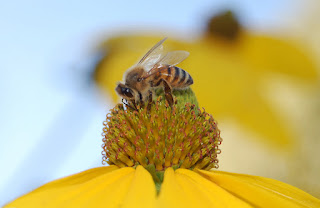“Inhibition of non-canonical translational initiation reduces elongation rate in eukaryotic ribosomes lacking non-essential ribosomal protein eS25 by adopting irregular translocational conformational states…”
Zzzzzzzz…See … I lost you, didn’t I?
That’s my problem. In fact it’s the problem of a lot of scientists. Science naturally deals with a lot of complex jargon that requires communication of important ideas to be precise and technical. Yet this language can be difficult to grasp, or just incredibly dull, to those who aren’t experts. Hence, while science-ese serves a purpose among scientists, it becomes a fool-proof cure for insomnia when we try to talk to non-scientists.
So, let’s try this again. Take two, this time without the sleep-inducing language.
“I study a protein that helps your body interpret very specific types of genetic code, and without it, your cells can’t read that code. My research is important because some potentially dangerous viruses mimic this type of genetic code to trick your body into making viruses. Oh, and you know what else uses these special genetic codes? Cancer.”
I bet that caught your attention.
When science is written only for scientists, as it is in academic journals, it’s hard for the average person to understand the importance of the work done in a research lab. When we scientists don’t take the time to translate our work back to our native language, we don’t communicate why it matters. When we don’t show why it matters, our research doesn’t get funded. And we don’t make progress towards treating cancer and curing diseases.
Getting the picture?
“The protein I study is found in the ribosome, the machinery of the cell that converts RNA into proteins. I know what the protein does when you are sick, but what does it do when you are well? I use a method called Polysome Analysis to see how effectively the ribosomes are converting RNA. Specifically, I use chemicals to throw a wrench into the ribosome’s gears while it performs specific tasks. This method enables me to see if cells without the protein of interest are getting worse at reading RNA. It’s important to know what something does before you remove it, or you could end up make people sicker instead of better.”
Is it becoming clearer?
One reason for the disconnect between science-ese and the common tongue is because, in the past, scientists were not taught how to talk to the public. For example, I was not urged to take a course in science communication when earning my bachelor’s degree in biology at Oakland University. Currently, I’m earning a PhD in Biomedical Science at the University of Alabama at Birmingham (UAB), and up until recently, all of my focus was on learning my science.
Today, however, I am involved in innovative new programs encouraging new scientists to explore opportunities away from the research bench and engage the public. I enrolled in UAB’s Experiences program through the university’s Office of Postdoctoral Education. This program offers a science communication boot camp that provides hands on instruction for learning to talk and write about science in a way that is accessible to the public. It also helps us expand other critical job skills, such as research administration, policy making, and entrepreneurship, which may be sought after by biotech companies.
“In conclusion, we found that normal, healthy cells without our protein aren’t seriously harmed, but cells producing certain viruses and certain types of cancer are. Now we need to continue this research to figure out how best to use this knowledge to help people prevent or fight disease.”
Not bad, huh? With a little practice, I think I can become completely bilingual.




 By Dr. Alex Van Ness
By Dr. Alex Van Ness